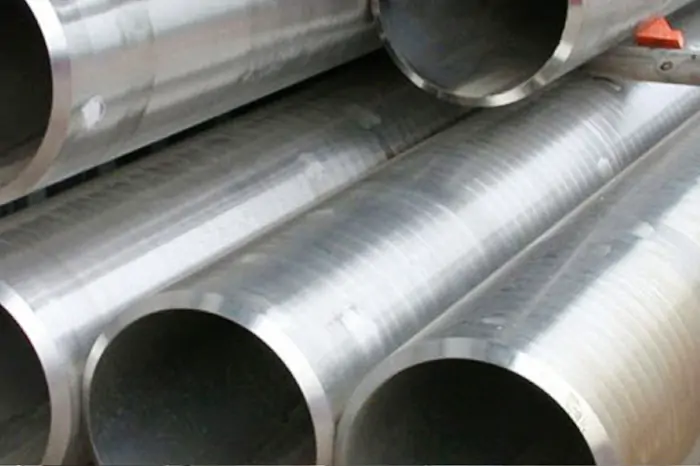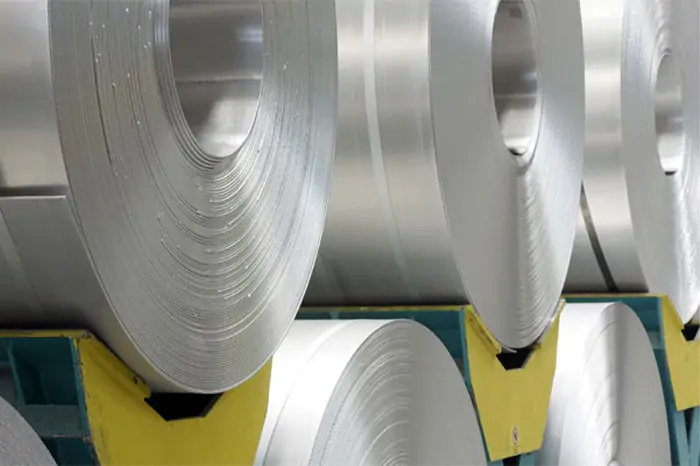In today’s industrial landscape, materials that can withstand harsh environments are crucial. Corrosion-resistant alloys (CRAs) are a class of metals specifically designed to endure aggressive conditions, ensuring longevity and performance. These alloys play an indispensable role in various sectors, from marine engineering to the oil and gas industry. Let’s delve into the significance of corrosion-resistant alloys and explore their diverse industrial applications.
Table of Contents
ToggleCorrosion-resistant alloys are specially formulated to resist degradation caused by environmental factors such as moisture, chemicals, and extreme temperatures. They include materials like stainless steel, nickel alloys, and other specialized metals that provide superior protection against corrosion.
Key Characteristics of Corrosion-Resistant Alloys
- Durability: These alloys are designed to last longer, even in the harshest environments.
- Versatility: They can be used across various industries due to their adaptability.
- Cost-effectiveness: By reducing maintenance and replacement needs, CRAs offer long-term savings.
Applications in Marine Engineering
Marine environments are notoriously harsh, with saltwater being one of the most aggressive corrosive agents. Corrosion-resistant metals are essential in this field to protect ships, offshore platforms, and other marine structures.
Benefits for Marine Engineering
- Longevity: CRAs ensure that marine structures remain functional for extended periods.
- Safety: By preventing corrosion, these alloys help maintain the structural integrity of marine equipment.
- Efficiency: Reduced maintenance needs lead to lower operational costs.
Role in the Oil and Gas Industry
The oil and gas industry operates in some of the most challenging environments. From deep-sea drilling to high-pressure pipelines, corrosion-resistant alloys are vital for maintaining equipment integrity and safety.
Key Applications in Oil and Gas
- Pipelines: CRAs prevent leaks and ruptures, ensuring safe transportation of oil and gas.
- Drilling Equipment: These alloys withstand high pressures and corrosive substances encountered during drilling operations.
- Offshore Platforms: Corrosion-resistant materials are crucial for the longevity and safety of offshore oil rigs.
Heat Exchanger Materials
Heat exchangers play a critical role in various industries, from power generation to chemical processing. Corrosion-resistant materials are essential for these devices, ensuring efficient and reliable heat transfer.
Advantages of Using CRAs in Heat Exchangers
- Improved Efficiency: CRAs maintain optimal performance by minimizing corrosion-related issues.
- Reduced Maintenance: These materials require fewer frequent repairs and replacements.
- Longer Lifespan: The durability of corrosion-resistant alloys extends the operational life of heat exchangers.
Importance of Chemical Processing Equipment
Chemical processing involves handling corrosive substances, making corrosion-resistant alloys a necessity. These materials ensure the safe and efficient operation of equipment used in chemical manufacturing.
Common Applications in Chemical Processing
- Reactors: CRAs protect reactors from chemical attacks, ensuring consistent production.
- Storage Tanks: These alloys prevent leaks and contamination in storage facilities.
- Pipes and Valves: Corrosion-resistant materials maintain the integrity of pipelines and control systems.
Nickel Alloys: A Standout in Corrosion Resistance
Nickel alloys are renowned for their exceptional resistance to corrosion and heat. They are widely used in industries that demand high-performance materials capable of withstanding extreme conditions.
Industries Relying on Nickel Alloys
- Aerospace: Nickel alloys are used in jet engines and other components that require high strength and resistance to extreme temperatures.
- Power Generation: These alloys are essential in power plants, especially in nuclear reactors, due to their durability and reliability.
- Medical Equipment: The biocompatibility of nickel alloys makes them suitable for medical implants and devices.
Stainless Steel Applications
Stainless steel is perhaps the most well-known corrosion-resistant alloy, celebrated for its versatility and strength. Its applications span numerous industries, making it an indispensable material in modern manufacturing.
Common Uses of Stainless Steel
- Construction: Stainless steel is used in building structures, facades, and roofing due to its aesthetic appeal and durability.
- Food Processing: Its resistance to corrosion and ease of cleaning make stainless steel ideal for food processing equipment.
- Automotive: The automotive industry uses stainless steel for exhaust systems and other components exposed to harsh conditions.
Conclusion
Corrosion-resistant alloys are the backbone of many industrial applications, providing the durability and reliability needed to withstand challenging environments. From marine engineering to chemical processing, these alloys ensure the longevity and safety of critical infrastructure. By investing in corrosion-resistant materials, industries can achieve greater efficiency, reduce maintenance costs, and enhance the overall performance of their operations.








